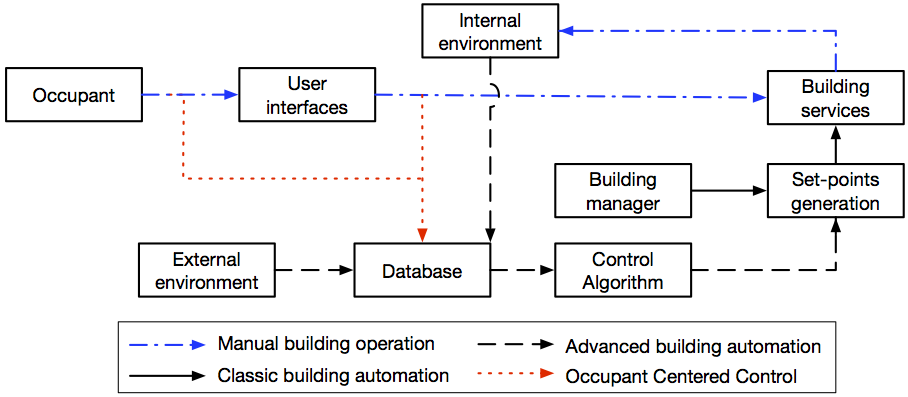
The energy savings of buildings promised by automatic control systems are often ineffective due to occupants who may not use the features of the system to the full potential at best, or deactivate the system at worst. Therefore, systems that adapt to the occupant over time without compromising his/her comfort are needed.
This occupant centered control (OCC) framework is illustrated in the above Figure. OCC is based on the fact that the data that can be recorded from either observing the user, or capturing his interactions with the building systems, can be used to infer set-points. This in turn allows to tailor and individualize the control actions such that user comfort is truly achieved.
As a consequence, the ability to gather data and determine patterns are key requirements for the success of OCC. Therefore our research focuses on
- Scalable, low-cost and low-power hardware for sensing, actuation and communication. This will allow for a dense sensor network to gather data.
- Algorithms for efficient pattern detection and knowledge discovery of both regular user behavior, but also override actions.
- Methods to derive useful knowledge from these patterns, e.g., set-points, occupancy schedules, etc.
- Holistically integrate these tools into building management system (BMS), such that OCC can be applied to real buildings with little operative overhead.

